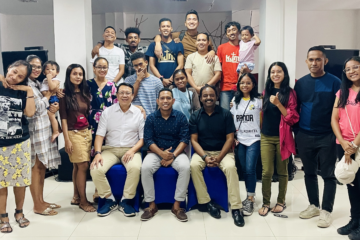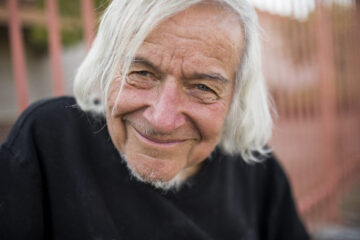Our nation is polarized.
We have run into gridlocks and have made only limited progress over the years in many important national issues such as racial discrimination and race relations. The senseless killing of African Americans recently has produced a global outcry for justice and police reform. Something must be done to prevent these tragedies from being repeated and the wounds being reopened. It saddens me that 50 years after Martin Luther King’s inspirational “I have a dream” speech, people of nearly every minority and ethnicity, including African Americans, Hispanics and Asian Americans, are still fighting for racial equality despite the progress made in this area.
I believe the best way to resolve gridlocks and fundamentally address major national issues such as the race relations is to find common ground.
Common ground is the cornerstone to resolving all human conflicts; Common ground is not a compromise or one side wins/one side loses, it is much greater than that; Common ground is discovered through a collaborative co-creative process, generating a new vision that is larger than anyone’s single vision.
How do we find common ground?
We recently founded a 501c(3) non-profit organization, the Common Ground Network, in order to formulate and teach a set of universally applicable methodologies proven to be useful in finding common ground.
First of all, one will convene a table to have a conversation. It is important to have the right attitude and mindset and be humble, reasonable, fair and respectful. We need to be centered, authentic, and we should “practice what we preach.” We must have a commitment to a genuine appreciation and understanding of opposing viewpoints.
Secondly, we need to develop a relationship and trust with people who have opposing views. This kind of trust does not come easily, so it will demand intentional effort.
Thirdly, we need to recognize and avoid the pitfalls and barriers to finding common ground such as stereotyping, dismissing and ridiculing.
When we start the process of finding common ground, the SALT principle is a great starting point. SALT stands for: start a conversation, ask a question, listen and then talk. We must first listen patiently in order to fully understand the opposing viewpoints, not only the rationale but also the emotions of those who hold those opinions. We should separate position from people and policies from values.
We must have a clear vision and know our own blind spots. What we see depends on our vantage point and the color of the often tinted glasses through which we look.
We need to be willing to trade places, move away from our position, step into the shoes of our opponents to see from their perspective, and take a fresh new look at the issue.
When it is our turn to express our views, we should do it with humility and the willingness to discuss the potential weaknesses of our position and the possibility that we might be wrong. We need to communicate effectively by speaking the language of the listener, and realize that more important than how much we know about our own position is how much our opponents truly understand it. We ought to be willing to question our own assumptions, examine our narratives and assess the validity of our own data objectively.
After both sides have had the chance to express and fully discuss viewpoints, we need to move from a point of view to a viewing point, i.e., to higher ground, so that we may gain a broader perspective of each of our views in the context of the big picture. We need to be curious and open-minded about unexpected discoveries.
Winning does not mean someone else has to lose. Life should not be “you or me” but rather “you and me.” No matter what racial or ethnic group we come from, we all have a shared humanity, and we would benefit from being partners rather than opponents throughout this short life on earth.
Even if we do not end up finding common ground on some issues, the process of attempting to do so will likely help us to get closer to the truth, to better understand each other, and to build better relationships.
Through the process of finding common ground, we will not only find innovative ways to improve race relations but also, and more importantly, be inspired to change and become more willing to work together.
Dr. Ming Wang, MD, PhD, is co-founder of the Common Ground Network (www.commonground.network), can be reached at [email protected], www.drmingwang.com














